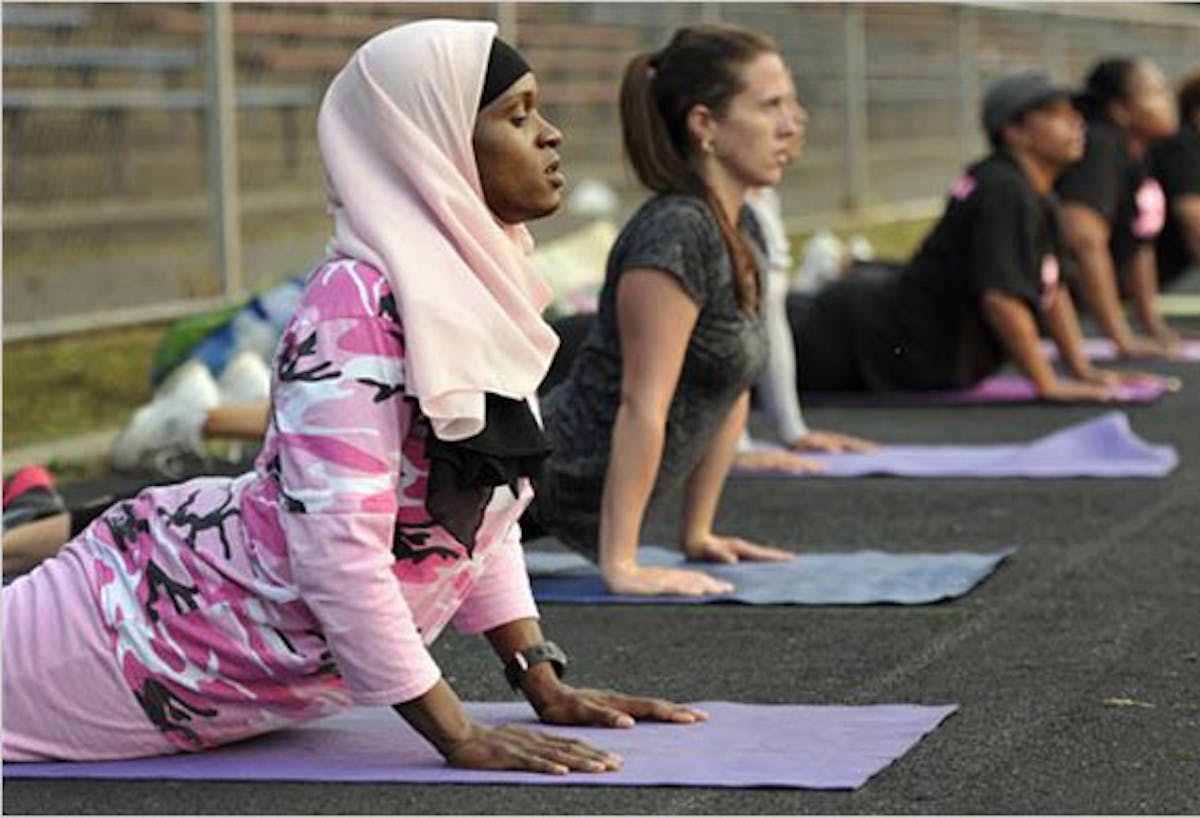MC Hammer was hip hop's first artist to cross over to mainstream superstardom. He sold more than 50 million albums and became an advertisers' darling for megabrands like Pepsi, Taco Bell and KFC. In the early 1990s, "U Can't Touch This" was on every radio, TV and T-shirt in America.
No doubt about it, a young black rapper from Oakland, Calif., was one of the hottest figures in American pop culture.
Juxtapose that with the climate that poor people in America's urban centers (disproportionately black and brown) were facing in the early '90s. The recession hit them hardest of all. Bill Clinton was carrying the "tough on crime" baton of Ronald Reagan's "war on drugs" like a champ. When he wasn't playing sax on "The Arsenio Hall Show," Clinton was implementing three-strikes laws, gutting welfare and making it impossible for anyone convicted of even using drugs to live in public housing. Police brutality soared and eventually boiled over into the L.A. riots. All this while Tipper Gore was leading a national campaign against "Gangsta Rap."
The Hood was taking a beating, but you'd never have known it by flipping channels and seeing Hammer's Colgate smile selling sneakers or popcorn chicken.
I bring this up now because a middle-aged Hammer was arrested last week in an Oakland suburb. He reports being approached by an officer while driving an elegant car through a mall parking lot. Instead of the standard "Good afternoon, sir. License and registration, please," the conversation began with "Are you on parole or probation?"
Having paused in a moment of offense and mild amusement, Hammer says the officer reached in to grab the keys from the ignition. Hammer's understandably visceral response led to his arrest for impeding the work of an officer.
Twenty years later, there's hardly a sliver of pop culture that doesn't bear the influence the black expression. Beyoncé is the biggest singer in the country; Oprah Winfrey is one of the most powerful figures in television, and Jay-Z is part-owner (1/15th of 1 percent) of the Brooklyn Nets. Most notably, America's president and Kennedyesque first family are black.
These pop-culture mascots would seem to indicate a shift in the racial equity of America. The dominant narrative in the age of Obama is that we've evolved into postracial color-blindness. Obama (and, to a lesser but still imperative degree, entertainment figures) are invoked as evidence that America has outgrown its legacy of institutional racism.
The actual numbers tell another tale entirely. Even as Obama sits in the Oval Office and as Beyoncé owns the stage at the Super Bowl, racial disparities in education, health care, employment, incarceration and every other quality-of-life yardstick continue to widen.
New research from the University of Pennsylvania indicates that our first "black president" has done less to address these race-specific inequalities than has any other Democratic president in the last 50 years. This hasn't stopped those on the right from hurling racially coded language like "welfare president" at him, literally waving their fingers in his face, questioning his citizenship and heckling him at a State of the Union address.
How is it that Americans can seem so in love with the Obamas, Bill Cosby, Oprah and, yes, MC Hammer and still allow the communities that produced them to go underserved and invisible? The truth is that we've developed a new "exceptional" status that we grant to certain individuals of color.
If certain individuals prove themselves to be nonconfrontational, safe and culturally acceptable enough in mainstream, white society, we deem them to be "one of the good ones." We talk about black athletes, entertainers and politicians who have transcended their race and have in our collective mind become bigger and worthier than their community. Would a white person ever need to transcend their race to achieve mainstream greatness?
No matter what Hollywood seduces us to believe, our entertainment doesn't necessarily mirror reality. Entertainment is an imaginary projection of what we believe ourselves to be. Black genius being more widely recognized in entertainment (or politics, for that matter) doesn't mean we've transformed the racially unjust systems that criminalize, undereducate and underemploy people of color in America.
MC Hammer was one of the most talented and successful entertainers of his time, but a white cop still has the power to profile, harass and arrest him whenever the cop decides a black man in a nice car is suspicious.
--------
Brother Ali is a Minneapolis hip-hop artist, speaker and activist. He will present on this and related topics with fellow hip-hop artist and activist Omar Offendum on Saturday at the Nobel Peace Prize Forum on the Augsburg College campus.
Ukraine aid vote is a domestic and geopolitical inflection point



